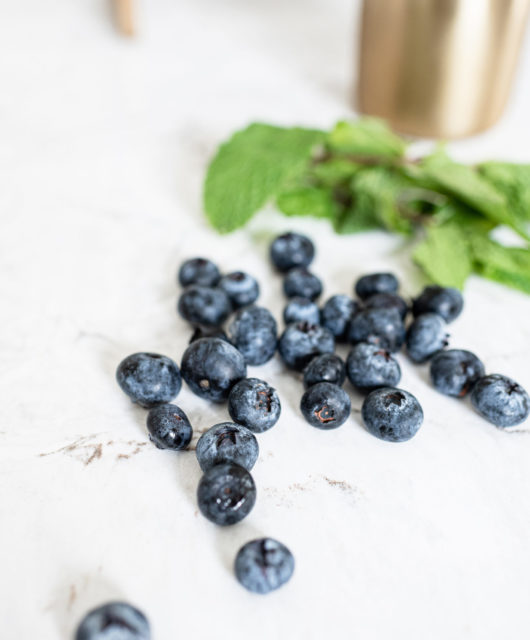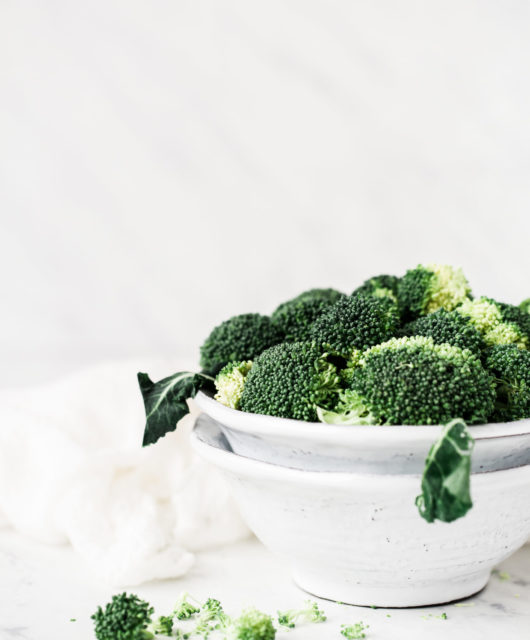As the warmer seasons approach, it’s common to start thinking about getting in shape and achieving your “summer body.” However, rather than falling into the trap of crash diets and quick fixes, a focus on sustainable weight loss and cultivating healthy habits that last throughout the year can have more rewarding, long term effects. In this blog, we’ll explore the science of forming good habits, the importance of body composition during weight loss, the right way to detoxify, the power of thermogenic ingredients, and how to build healthy habits for sustainable weight management.
Part 1: The Science of Forming Good Habits
The science behind transforming positive behaviours into a recurring pattern of good habits lies in the brain’s ability to rewire itself through neuroplasticity. When we repeatedly perform a specific action, neural pathways associated with that behaviour become stronger, making it easier to repeat the behaviour in the future. This is how habits are created, and you can use this science to your advantage.
So to form good habits, start with the following:
- Goal Setting: Setting clear and realistic goals helps provide direction and motivation. Break down larger goals into smaller, achievable steps to maintain progress and celebrate achievements along the way.
- Consistency: Consistent repetition of desired behaviours reinforces the neural pathways, making the habits more automatic over time.
- Accountability: Engaging in habits with the support of others, like friends or a fitness community, can increase motivation and provide a sense of responsibility.
- Positive Reinforcement: Celebrating small successes and rewarding yourself for sticking to good habits can reinforce positive behaviours and make the habit-forming process more enjoyable.
- Mindfulness: Being mindful of our actions, emotions, and triggers can help identify patterns and make better choices aligned with our health and fitness goals.
Part 2: The Importance of Body Composition in Sustainable Weight Loss
Body composition analysis provides a deeper understanding of how weight loss efforts impact the body. Instead of focusing solely on the number on the scale, body composition analysis reveals the proportions of lean muscle mass, body fat, and other tissues.
Why body composition matters:
- Muscle vs. Fat: Lean muscle mass is more metabolically active than fat tissue, meaning it burns more calories at rest. Preserving or increasing muscle mass during weight loss helps maintain a higher metabolic rate.
- Health Benefits: Reducing excess body fat is associated with improved cardiovascular health, decreased risk of chronic diseases, and enhanced overall well-being.
- Measuring Progress: Tracking changes in body composition provides a more accurate assessment of weight loss success and can inform adjustments to diet and exercise plans if necessary.

Part 3: Sustainable Weight Loss – The Summer Body Goal
The idea that “summer bodies are made in winter” emphasises the importance of adopting healthy habits year-round. Quick fixes and extreme diets may lead to rapid weight loss, but such approaches are often unsustainable and can negatively impact health.
Sustainable weight loss strategies include:
- Balanced Nutrition: Prioritise nutrient-dense foods, including vegetables, fruits, whole grains, lean proteins, and healthy fats. Avoid restrictive diets and focus on moderation.
- Portion Control: Pay attention to portion sizes to avoid overeating, and eat mindfully, savouring each bite.
- Regular Exercise: Engage in a mix of cardiovascular exercises, strength training, and flexibility workouts. Find physical activities that you enjoy to stay motivated and consistent.
- Hydration: Drink an adequate amount of water daily to support metabolism, digestion, and overall health.
- Patience and Persistence: Understand that sustainable weight loss takes time and dedication. Aim for slow, steady progress rather than rapid, unsustainable results.
Part 4: The Science of Detoxification
Detoxification is a crucial process that the body undergoes to eliminate harmful substances and waste products. It plays a vital role in maintaining optimal health and supporting various bodily functions. While the body has natural detoxification systems, incorporating certain ingredients and nutrients into your routine can further enhance this process.
Detoxification primarily occurs in the liver, where toxins and waste products are metabolised and prepared for excretion. These harmful substances can come from various sources, such as environmental pollutants, processed foods, and medications. The liver’s detoxification pathways involve two phases.
During phase I of detoxification, there are enzymes called cytochrome P450s that break down toxins into intermediate substances. These intermediate substances are chemical compounds formed as part of the detoxification process. While this is an essential step in converting harmful toxins into forms that the body can eventually eliminate, some intermediate substances can be more harmful or reactive than the original toxins themselves.
Thankfully, thiis is where phase II of detoxification comes into play. In this phase, the body further processes these intermediate substances through conjugation, which involves binding them with specific molecules. This transformation makes the intermediate substances less harmful and more water-soluble. When substances are water-soluble, it becomes easier for the body to get rid of them through processes like urine or sweat, allowing for their safe elimination from the body.
By undergoing Phase I and Phase II detoxification, the body can efficiently neutralise and eliminate harmful toxins, protecting its tissues and organs and promoting overall health and well-being. Understanding the role of intermediate substances in the detoxification process sheds light on how the body effectively deals with toxins to keep you healthy and functioning optimally.
Effective detoxification is essential for various reasons. Firstly, it promotes improved digestive health, ensuring a healthy gastrointestinal tract and regular bowel movements. Secondly, it enhances liver function, enabling the efficient filtering of harmful substances from the bloodstream, thus supporting overall health. Thirdly, detoxification provides valuable support to the immune system by reducing the body’s toxic burden, enhancing its ability to fight infections and diseases. Additionally, eliminating toxins allows the body to allocate more energy to vital functions, increasing energy levels and vitality. Lastly, detoxification plays a role in healthy weight management by aiding in the removal of waste products and excess hormones, potentially supporting weight loss efforts. Embracing detoxification as part of your lifestyle can have a significant positive impact on your overall well-being.
Here are some incredible nutrients and detox powerhouses to incorporate into your daily routine:
- Aloe Vera: Known for its soothing properties, aloe vera can help cleanse the gastrointestinal tract and support digestive health. It contains compounds that promote the elimination of waste, aiding the body’s natural detoxification processes.
- Apple Pectin: This soluble fibre is found in apples and plays a crucial role in regulating the digestive system. By binding to toxins and waste products, apple pectin helps promote healthy bowel movements and aids in the detoxification process.
- Psyllium Seed Husk: Another excellent source of dietary fibre, psyllium seed husk supports bowel regularity and overall digestive health. By absorbing water and forming a gel-like substance, psyllium aids in promoting the elimination of waste, assisting the body’s natural detoxification pathways.
- Milk Thistle: Milk thistle contains an active compound called silymarin, which has been shown to support liver health and protect it from damage caused by toxins.
- Turmeric: Curcumin, the active compound in turmeric, possesses antioxidant and anti-inflammatory properties, which can aid in detoxification processes and reduce oxidative stress on the body.
- Dandelion Root: Dandelion root has been traditionally used to support liver health and stimulate bile production, aiding in the breakdown and elimination of toxins.
- Cruciferous Vegetables: Vegetables like broccoli, cauliflower, cabbage, and Brussels sprouts contain compounds that support phase II detoxification pathways, assisting in the elimination of harmful substances.
- Vitamin C: This potent antioxidant helps neutralise free radicals and supports the liver’s detoxification processes.
- Fibre: Adequate dietary fibre intake supports regular bowel movements, aiding in eliminating waste and toxins.
Incorporating these detoxification ingredients and nutrients into your diet can actively support your body’s natural detoxification processes and promote overall well-being.
Remember, detoxification is a continuous journey that thrives in harmony with a balanced and healthy lifestyle!

Part 5: The Power of Thermogenic Ingredients
Thermogenic ingredients offer a natural way to enhance weight loss efforts by increasing metabolism and promoting the burning of calories and body fat for fuel. By incorporating these ingredients into your routine, you can support your weight management goals and enjoy the benefits of increased energy expenditure and improved fat metabolism.
Below are several thermogenic ingredients and the effects they can have on your body:
- Citrus Extracts: Derived from citrus fruits like oranges and lemons, these extracts contain bioactive compounds such as flavonoids and polyphenols. These compounds have been shown to support fat metabolism, aiding in the breakdown of stored body fat.
- Guarana Extract: Obtained from the seeds of the guarana plant, this natural ingredient contains caffeine along with other bioactive compounds. Guarana extract stimulates the nervous system, promoting increased energy expenditure and alertness.
- Caffeine: Widely known for its stimulating effects, caffeine is found in various plant sources, including Coffea robusta (coffee), green tea, and tea leaves. As a natural thermogenic, caffeine stimulates the central nervous system, increasing heart rate and metabolic rate. This results in more calories being burned and can improve exercise performance and mental focus.
- Capsaicin: Found in chili peppers, capsaicin is responsible for their spicy kick. It can boost metabolism and fat oxidation, leading to increased calorie burning.
- Green Tea Extract: Green tea contains catechins, particularly epigallocatechin gallate (EGCG), which may help increase fat oxidation and energy expenditure.
By incorporating these thermogenic ingredients into your routine, you can support your weight management efforts and experience increased calorie burning and fat loss. However, remember that thermogenic supplements are not a substitute for a balanced diet and regular exercise. Instead, they should complement a comprehensive approach to sustainable weight loss and overall well-being.
Achieving sustainable weight loss and maintaining a healthy body composition require forming good habits, understanding the science behind body composition, embracing a balanced detoxification approach, and incorporating thermogenic ingredients into your routine. By focusing on building healthy habits year-round and making informed choices about detoxification and thermogenic ingredients, you can achieve your summer body goals while enjoying improved overall well-being. Remember that weight management is a journey, and by taking a holistic approach to your health, you can set yourself up for success and a happier, healthier life.
To learn more about body composition:
- Achieving wellness: a holistic approach to mental clarity, healthy insides, and natural beauty
- New you breakthrough: how to achieve your best shape ever in 2023
As always, consult with healthcare professionals or registered dietitian to ensure any dietary changes or supplements align with your individual health needs and goals.










